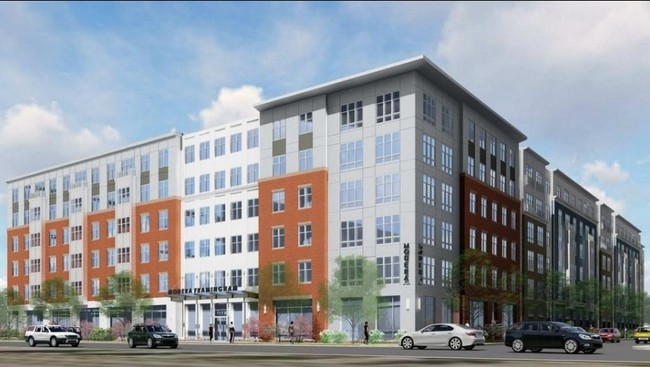[broadstreet zone=”53820″]
FRAMINGHAM – The Framingham Economic Development Industrial Corporation Board (EDIC) met in special session on July 7 and voted unanimously 7-0 to recommend to the Framingham Planning Board, Mayor Yvonne Spicer and the 11-member Framingham Council reject the proposed moratorium on new housing projects in the City of Framingham.
The following is a letter published by the Framingham EDIC against the moratorium:
The Framingham Economic Development Industrial Corporation Board (the EDIC Board) discussed the proposed city-wide apartment moratorium at our regular June meeting. The board members represent a broad cross-section of Framingham residents and business community representatives, and understand the concern that many members of the Framingham community have regarding the impacts of the city’s development generally and housing in particular. After discussing many positive and negative aspects of the City’s ongoing development, we would like to express our opinion that the proposed moratorium will not be helpful to the cause of positive economic development of the City of Framingham.

The moratorium is likely to be interpreted outside of Framingham as an indication that the City is “no longer open for business”. It will call into question the City’s commitment to the vision of a downtown revitalization built around attracting new residents and businesses through support for Transit Oriented Development and discourage creative mixed-use development proposals. While we can excuse the referendum as limited to housing, there is no escaping the impression that will be created as outsiders form their own opinions. An example can be seen in a recent issue of Banker and Tradesman, where exactly that conclusion is drawn. As the city attempts to recover from COVID-19, this is not the narrative we want to project. (“Framingham Apartment Freeze Could Upend City’s Revitalization” Banker and Tradesman 5.31.20., paywall)
We believe that the actual impact of the resolution on the number of housing projects may be low or non-existent. The COVID crisis and the resulting recession will have the impact of increasing the risk of investment projects and causing investors to adopt a wait and see approach. We expect that it is unlikely that any new investment projects will be proposed during the period of the moratorium (6 to 9 months). We will then have a chance to see the impact of the already approved new housing coming online over the next 12 months, without need of enacting a moratorium. We essentially have the desired effect without the moratorium, while also maintaining our open for business stance.
[broadstreet zone=”59948″]
Housing availability and growth are inexorably linked to business investment in the City of Framingham. Businesses assess the availability of reasonably priced, high quality housing as a key determinant of where to locate new facilities. The new restaurants, beer halls and retailers located in our downtown will certainly benefit from the new residents and customers who will live in the new apartments within walking distance of their establishments. Some of these new business owners have expressed a concern about the moratorium to the EDIC, and their belief that it is important for the City to follow through on our vision for the revitalization of the downtown.
Potential new businesses and expansions of existing businesses build the investment business case for locating in Framingham’s downtown partly based on the attractiveness of projected growth of the local population and growth in disposable income that can be spent in their businesses. With the availability of new housing, and growth in local spending power, downtown Framingham can be expected to become a growing, dynamic, exciting place that will attract additional new business investment and new human talent in the form of new residents. It would be detrimental to Framingham’s economic growth to send a signal that we would like to slow the positive change we are seeing.
[broadstreet zone=”59983″]
We have been fortunate that private sector investment has historically funded most of the growth of our housing stock in the city. The 1,400 new apartments approved by the Town and City in the last 5 years represent hundreds of millions of dollars invested in providing high quality housing for our diverse population, and for the improvement of our City. Framingham needs to add at least 200 units per year just to keep pace with our current rate of population growth (0.6% per year). Increased housing supply will also help with the affordability issues that are increasingly holding back the ability of our young professionals and families to find appropriate housing and our suburban families from being able to downsize and stay in a community that they know and love as they approach retirement.
The EDIC Board believes the proposed multifamily housing moratorium is unnecessary and will be interpreted by the business community as a signal that the City is closed for business, just as the City’s business community approaches the challenges of reopening and rebuilding following the COVID crises.

***
Photo courtesy. Moderna apartments being constructed on Route 135 in Framingham

